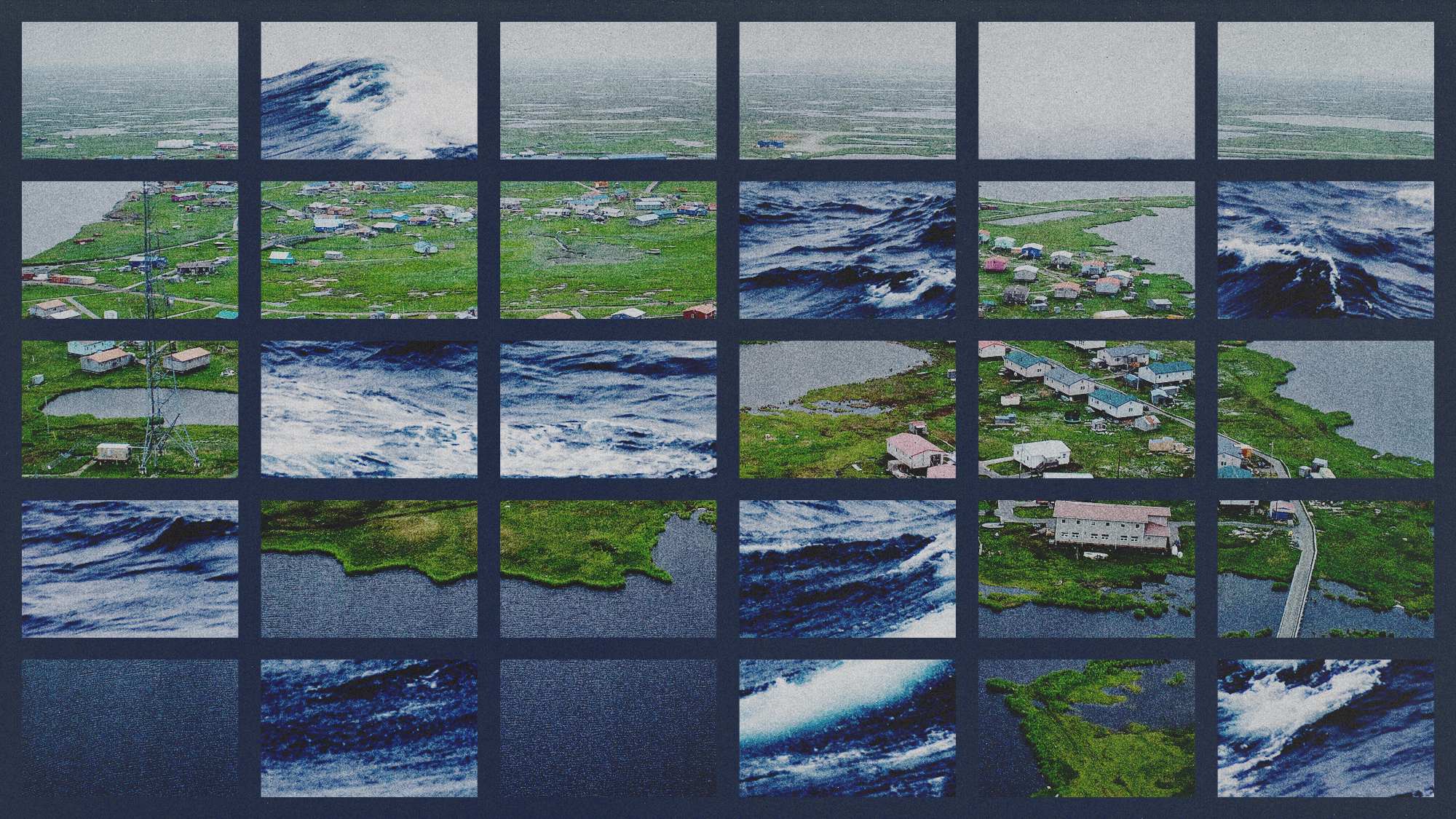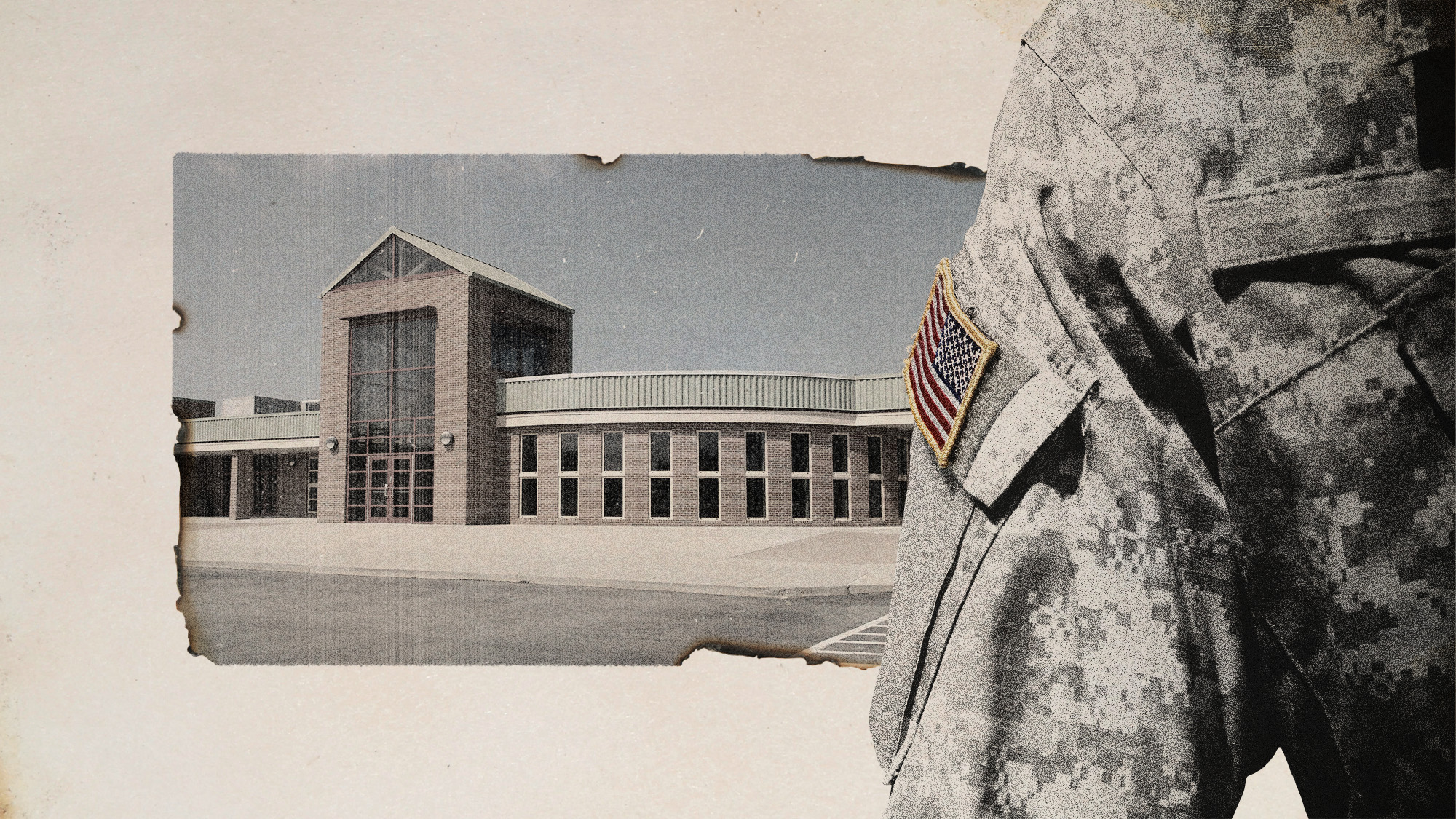Why the UK is running out of burial plots
Capacity in cemeteries is running out as the death rate increases

A free daily email with the biggest news stories of the day – and the best features from TheWeek.com
You are now subscribed
Your newsletter sign-up was successful
The country's graveyards and cemeteries are close to capacity, and Britain is running out of places to bury our dead.
The "death care sector" is "creaking" as it struggles to keep up with the steadily increasing death rate "of an ageing population", said The Telegraph, and officials are being forced to consider ever more "unpalatable" solutions.
'Disturb human remains'
In 2021, The Times predicted that cemeteries in a quarter of local councils would be full in "10 years or less" , while "almost one in six" councils would have full cemeteries within five years. And, last week, The Telegraph confirmed that burial space is already "running out" across England and Wales, with "anecdotal evidence" suggesting that pandemic pressures have only "exacerbated the issue".
The Week
Escape your echo chamber. Get the facts behind the news, plus analysis from multiple perspectives.

Sign up for The Week's Free Newsletters
From our morning news briefing to a weekly Good News Newsletter, get the best of The Week delivered directly to your inbox.
From our morning news briefing to a weekly Good News Newsletter, get the best of The Week delivered directly to your inbox.
And cremation is not the obvious solution it might seem: although 78% of of British funerals are cremations, said BBC Science Focus, many relatives "like the idea of having somewhere to visit to pay their respects, remember and mourn the dead", so "ashes are often buried or interred".
The Law Commission has called Britain's burial laws "outdated, piecemeal and complex" and is considering "the reuse and reclaiming of all types of burial grounds", said The Telegraph.
Back in March, Bishop's Stortford became the "first town outside London" to permit graves on non-consecrated land to be re-used. Defending the controversial move to "disturb human remains", a spokesperson said that if the council had "done nothing and nature had taken its course, within 12 years there would be no space left" in the town for people to be buried.
Graves can currently only be reused "if they are at least 75 years old". But the graves of people who died such a long time ago "tend not to get many visitors", said BBC Science Focus, so the recently deceased "can be laid to rest on top with very little fuss". As well as saving space, this approach, which is "commonplace in Germany", means families can be buried in the same graveyards – a "final request that is increasingly difficult to honour".
A free daily email with the biggest news stories of the day – and the best features from TheWeek.com
Squeamishness won't help
Meanwhile, other problems in the death care sector are also creating capacity issues above ground. Difficulty securing time slots at crematoria and delays in an "under-resourced" coroner service mean families are waiting longer for their loved one's body to be buried or cremated, said The Telegraph.
This means bodies have to be stored somewhere above ground for longer periods. Last year, "almost half of the funeral directors in England" warned that their storage capacity for deceased people was "under pressure". The system is "stretched to the point of bursting", Deborah Smith, from the National Association of Funeral Directors, told the paper.
A reluctance to talk about death risks letting things get worse, said The Telegraph. Our "instinctive squeamishness" about "discussing the business of dealing with the dead" won't help solve the problems the sector is facing.
Chas Newkey-Burden has been part of The Week Digital team for more than a decade and a journalist for 25 years, starting out on the irreverent football weekly 90 Minutes, before moving to lifestyle magazines Loaded and Attitude. He was a columnist for The Big Issue and landed a world exclusive with David Beckham that became the weekly magazine’s bestselling issue. He now writes regularly for The Guardian, The Telegraph, The Independent, Metro, FourFourTwo and the i new site. He is also the author of a number of non-fiction books.
-
 The Week contest: AI bellyaching
The Week contest: AI bellyachingPuzzles and Quizzes
-
 Political cartoons for February 18
Political cartoons for February 18Cartoons Wednesday’s political cartoons include the DOW, human replacement, and more
-
 The best music tours to book in 2026
The best music tours to book in 2026The Week Recommends Must-see live shows to catch this year from Lily Allen to Florence + The Machine
-
 Western Alaska reels as storm aftermath prompts mass evacuations
Western Alaska reels as storm aftermath prompts mass evacuationsUNDER THE RADAR Alaskan lawmakers point to climate change as airlifts relocate hundreds from coastal communities devastated by the remnants of Typhoon Halong
-
 Recreation or addiction? Military base slot machines rake in millions.
Recreation or addiction? Military base slot machines rake in millions.Under the Radar There are several thousand slot machines on military bases
-
 The horse racing industry is caught up in the migrant debate
The horse racing industry is caught up in the migrant debateUnder the Radar At least 78% of the workers on race tracks are reportedly immigrants
-
 An American faces years in jail for allegedly insulting Thailand's monarchy
An American faces years in jail for allegedly insulting Thailand's monarchyUnder the Radar The country's laws against insulting the monarchy are some of the world's strongest
-
 North Carolina Supreme Court risks undermining its legitimacy
North Carolina Supreme Court risks undermining its legitimacyUnder the radar A contentious legal battle over whether to seat one of its own members threatens not only the future of the court's ideological balance, but its role in the public sphere
-
 How Pokémon Go became entangled in international espionage
How Pokémon Go became entangled in international espionageUnder the Radar 'Zero evidence' augmented reality app was ever used for spying by Western intelligence, despite state bans and claims that persist to this day
-
 Extremism is becoming more common among veterans and service members
Extremism is becoming more common among veterans and service membersUnder the Radar Nearly 500 people arrested for extremist crimes between 2017 and 2023 had military backgrounds
-
 How a kidnapped pilot put Free Papua movement in the spotlight
How a kidnapped pilot put Free Papua movement in the spotlightUnder the Radar New Zealand pilot Phillip Mehrtens was held for 19 months, drawing international attention to violent insurgency in Indonesia